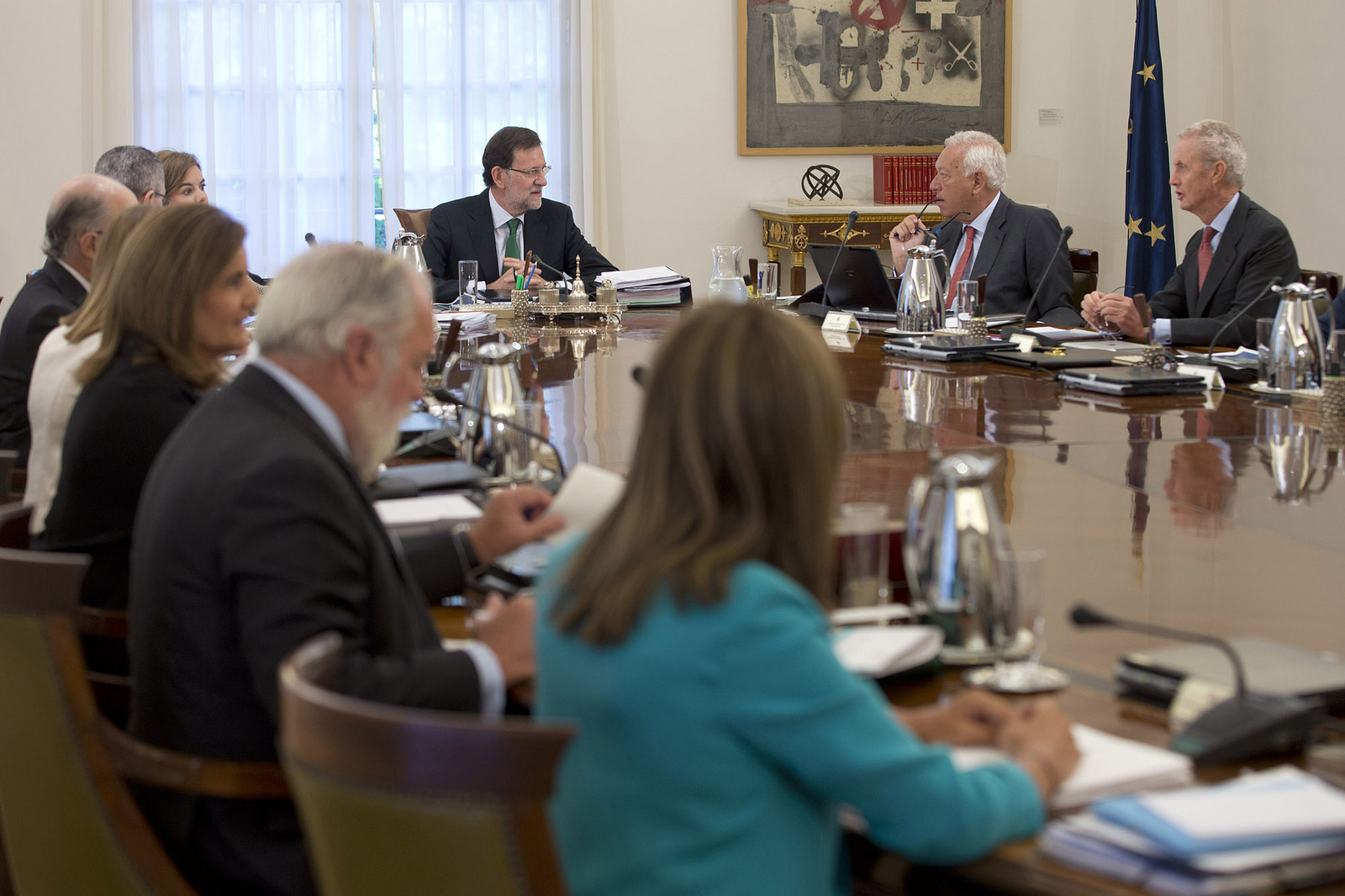Madrid/Perugia, 4 April 2017 – In March leading Spanish newspapers El País and El Confidencial published exclusive stories revealing never-before-seen information that exposed remarkable micro-management by the Spanish Cabinet (“Consejo de Ministros”) of decisions such as overspending on public procurement contracts and the granting or revocation of nationality.
These stories – including a full page in the weekend edition of El País as well as a series of stories in the digital El Confidencial – were made possible thanks to a single access to information request by Alba Gutierrez of Access Info Europe. By exploiting a loophole in the Spanish Transparency Law which makes secret the minutes of the Spanish Cabinet, but does not actually cover the detailed agendas, it’s possible to get a fascinating insight into the way that senior Ministers are taking time with decisions that might be best left to lower levels of the administration.
At the International Journalism Festival in Perugia this week, Helen Darbishire and Luisa Izuzquiza from Access Info will be speaking to journalists about stories such as these and how to use the access to information law to get genuine scoops.
“What’s really important about these stories, is that not only were they great material for journalists but they also contribute to public understanding about what kind of decisions are being taken by the top levels of government,” commented Helen Darbishire, Founder and Executive Director of Access Info.
The story in El País by journalist Elena Sevillano, revealed how the failure by the Ministry of Justice to cross check databases was resulting in errors in granting nationality being referred to the Spanish Cabinet to be reversed: an entirely unnecessary expenditure of public time and resources.
“Secrecy often hides inefficiency and the minute the story is made public, then we can have a proper discussion in society about to improve things,” added Darbishire.
In parallel, Jesús Escudero, from El Confidencial newspaper, revealed that the Cabinet is also taking decisions about whether or not to permit overspending on projects after the public auditor had raised questions about excess spending: between 2013 and 2016, Spanish Ministers reviewed a total of 515 dossiers potentially permitting 310 million Euros of excessive and unnecessary public expenditure.
“There are huge concerns here with the way that this secretive decision making is working,” added Darbishire. “First the concern about the amount of time that Ministers are spending reviewing the work of the public auditors, second the possibility for private interests to interfere when decisions are taken behind closed doors with no reporting to the public.”
“The great thing is that, thanks to Spain’s young 2013 transparency law, we are able to get this information for the first time. The tip for journalists here is: if nobody has asked for it before, give it a shot and request the information and you might have a great story!,” concluded Darbishire.
Background: Information Obtained on Appeal
Access Info obtained access to the Spanish Cabinet Agendas thanks to a request submitted on 16 June 2016.
After the initial refusal to access by the Ministry of the Presidency, the organization appealed to the Spanish Transparency Council, which ruled in favour of Access Info in October 2016.
The Transparency Council concluded that the disclosure of matters to be discussed in the Council of Ministers did not harm the confidentiality of the deliberations, something which is protected by law. The difference here is between knowing what issues are being discussed and being privy to the details of the actual conversations.
Furthermore, the Transparency Law specifically states that the objective of access to information is to permit public scrutiny of officials.
The Ministry of Presidency, after requesting the opinion of its legal services, decided to comply with this resolution and eventually did so, three months late, in February 2017.
“It took almost nine months to get this information, but it was well worth the wait, both for the journalists working with us and for the public because now we can understand better how decisions are being taken at the top levels of Spanish government,” stated Alba Gutierrez.
“Access to the Agendas of Spanish Cabinet meetings is a big step and now the Government has the opportunity to show its commitment to transparency and to start proactively publishing this information. The official agreements, which are essential to know the final decisions, should be also published,” explains Alba Gutiérrez, Access Info’s researcher and campaign coordinator.
Access Info is still pressing to get more information about the decisions taken by the Spanish Cabinet.
“It’s one thing to protect a space for frank discussions during decision making, and it’s quite a different thing to hide all decisions from the public. We still have work to do and will be submitting more requests,” concluded Gutierrez.
You can see all the published Agendas of the Council of Ministers between 2013 and 2016 here (Spanish).
You can read the entire resolution of the Council of Transparency here (Spanish): ![]()
For more information, please contact:
Luisa Izuzquiza, Communications Officer | Access Info Europe
or
Alba Gutiérrez, RTI Campaigner and Researcher | Access Info Europe
Send an e-mail or call +34 913 656 558
Photo: La Moncloa – Gobierno de España via Flickr (CC BY-NC-ND 2.0)

